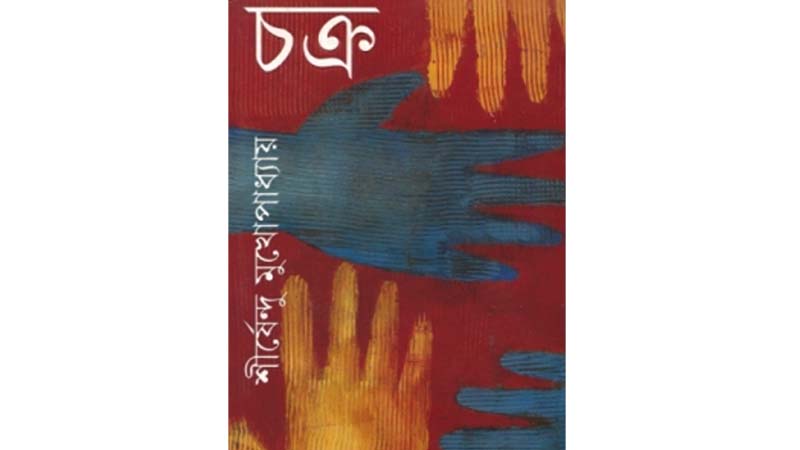Book Talk
Chakra by Shirshendu Mukhopadhyay

Chakra is a common word in many Indian languages, derived from Sanskrit. It has myriad meanings, the ones among them relevant to this book are: ‘Circle'(of seasons, of life), ‘Wheel'(of time).
The story of Chakra consists of love, introspection and breaking free from traditional ideas and practices. It also constitutes a gradual and trustworthy presentation of urban habits invading the simple rural lifestyle. Chakra has narrated the immeasurable properties of life with great care and tenderness.
Chakra is a Bangla novel by eminent author Shirshendu Mukhopadhyay. I wonder why I hadn’t come across this one in so many years. I have read the best of Shirshendu in Durbeen, Parthibo and Manabjamin, but missed this one. All of them including Chakra have a very vast milieu as their setting. There are a plethora of characters introduced gradually to the readers, linking them to each other in a complex web of a plot. I’d say Chakra is comparatively less complex in characterization than the other novels but the incidents around each of them are woven very carefully here. As a Shirshendu staple, you will encounter innumerable sub plots arrayed in various strata, none too unworthy for the main plot.
The story revolves around two main protagonists, Amal and Parul. Inspite of being childhood lovers, their marriage does not happen due to a single incident which keeps affecting their lives even two decades later. Shirshendu touches a sensitive issue here, a blur between forced sex in lovers and rape. Parul rejects Amal for forcing sex on her at a tender age of seventeen, and when they meet again after many years, she meets a different Amal.
A successful man, married with two kids, returns to their native village and faces the most intriguing question of his life. Does he still love her? Amal’s daughter Sohag shares an unusual relation with Parul, she worships her. Amal’s wife Mona is proud of Parul for rejecting a brilliant man, something that most women don’t have the courage to. He dallies on the verge of insanity, his daughter treads the same path, his father builds a tender relation with both of them.
The characterization mesmerizes me as usual. Apart from the main protagonists, the parallel ones like Sohag and Dhiren are cast quite elaborately. Local rural people like Panna and Biju merge seamlessly with their NRI counterpart Sohag. She is the cbp4aconnecting link between urban and rural roots of her family, an unusual girl who has an uncanny affinity for the village. This urban and rural conflict has made its appearance in quite a few Shirshendu novels, but the topic never gets boring due to a different treatment in each of the books.
The writing is as lucid as it could be, the characters portray emotions beyond ranges, sometimes too subtle for our tastes, deep philosophies discussed in simple words – it is a treat in the form of fiction. However, the narrative does get a tad boring for people who prefer slimmer books. In fact, the story gets a little slow at the end, bound to make some people impatient. Being a biased Shirshendu fan, it wasn’t a deterrent for me to complete reading.
Lastly, the narrative begins and ends with the journey of a senile Cobra residing in one of the dilapidated village mansions. It brought a chill of anticipation down my spine, but it actually holds the story together.




